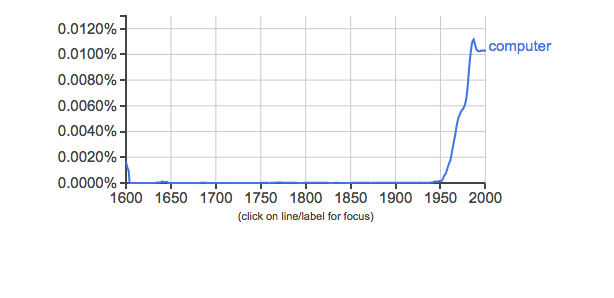This past weekend my wife and I went to dinner with some friends to a nice restaurant and had a very large meal.
Amuse-bouche, appetizers, soup, salad, entree, dessert. It was a gamut of flavors. Pork belly, fish, butter, vinegar, cheese, charcuterie, chocolate and more. The meal was full of umami and je ne sais quoi. Our taste buds weren’t just satisfied, they were in overload.
The following day I felt like garbage. In one sitting, I had consumed as many calories as I might in an entire day. My body was in complete shutdown.
I was slow of thought and motion. I barely ate anything for breakfast, skipped lunch, and ate a small roll of sushi for dinner. I still felt full.
“Garbage in, garbage out (“GIGO”) in the field of computer science or information and communications technology refers to the fact that computers, since they operate by logical processes, will unquestioningly process unintended, even nonsensical, input data (“garbage in”) and produce undesired, often nonsensical, output (“garbage out”).” – Wikipedia
If you’re reading this, you’re likely a desk jockey. Responding to emails, answering phone calls, assembling documents. The only time of the day you’re strenuously burning calories is while you’re at the gym.
You need to eat in conjunction with how your spend your day. Consume too much fast food, processed foods, and fully-leaded soft drinks and you’ll end up overweight and feeling slow – not just physically but mentally as well.
The way your body feels impacts the performance of your mind. When you put garbage into your body, the output is also likely going to be garbage.
You Are What You Eat Consume
But we’re more than just meat computers. We adapt and change our bodies all on our own without being programmed. By starting exercise and adjusting your diet, you can change your body into a more highly performing machine.
But this is tough because somewhere along the way, the word “diet” was corrupted. Diet has come to mean something you do for a few weeks then go back to what you were doing before. It’s why so many people bounce from fad diet to fad diet.
People start the newest diet fad craze – the watermelon sriracha diet – manage to lose 10 pounds then quit the diet and go back to eating like they were before.
In its original form, the word “diet” means something much more permanent. The word “diet” comes from the Greek diaita, meaning “way of life” or “regimen.” Even regimen is interesting. “Regimen” is Latin meaning “rule, guidance, government, means of guidance, or rudder.”
So a diet or regimen is something that should guide your way of life.
This is important if you want to keep your body healthy. Exercise, and eating (most of the time) clean food will allow your body to stay prepared for physical activities that you find pleasing – soccer, basketball, rock climbing, Judo, dancing, whatever.
You won’t be in Olympic caliber condition, but by following a diet, your body can be optimized for physical activity.
But we all have a mental diet as well.
Mr. Roboto
As lawyers, our job is essentially to think. People come to us with problems and pay us to craft solutions to them. Our mind then, is our most important tool we use day-to-day.
All the legal search engines, practice management platforms, smartphones, and other whiz-bang widgets don’t mean squat if you can’t actually think your way through a problem.
Since we touched on etymology for a bit, and we’re talking about GIGO, let’s look at Google NGram for the word “computer:”
 While there is certainly a spike in the 1950s do to the information revolution, you’ll notice that the word “computer” has been bubbling along in books since the 1600s. This is because “computer” originally meant “one who calculates,” from the word compute, from Latin computare “to count, sum up, reckon together.”
While there is certainly a spike in the 1950s do to the information revolution, you’ll notice that the word “computer” has been bubbling along in books since the 1600s. This is because “computer” originally meant “one who calculates,” from the word compute, from Latin computare “to count, sum up, reckon together.”
Human beings were the original computers. Humans are actually susceptible to GIGO as well – explicitly within the field of computation and calculation – but in other areas as well.
Plant A Tree
Just as you need a diet to keep your body physically fit, you need an information diet to keep your minds sharp. The concept of an information diet is not a new one, but was given much greater attention in 2013 when Clay Johnson wrote a book entitled Information Diet for O’Reilly Publishing.
Johnson believes that, much like junk food leads to obesity and health problems, junk information kills productivity, efficiency, and worse, feeds ignorance. This is true in my experience as well.
When I read long, in-depth articles on a topic, I can feel my mind working. It’s changing the way I think about a topic. It might inspire me to write something on my own, thinking aloud to see if I understand the topic at hand.
I think this concept was best summarized in piece written by Tim Urban entitled How Tesla Will Change The World at Wait But Why:
I’ve heard people compare knowledge of a topic to a tree. If you don’t fully get it, it’s like a tree in your head with no trunk—and without a trunk, when you learn something new about the topic—a new branch or leaf of the tree—there’s nothing for it to hang onto, so it just falls away.
By clearing out fog all the way to the bottom, I build a tree trunk in my head, and from then on, all new information can hold on, which makes that topic forever more interesting and productive to learn about.
And what I usually find is that so many of the topics I’ve pegged as “boring” in my head are actually just foggy to me—like watching episode 17 of a great show, which would be boring if you didn’t have the tree trunk of the back story and characters in place.
Yet I think for many of us, if we really sat down and examined our information diet, we’re often trying to add new leaves to a tree we don’t possess. Our minds are bombarded with an overabundance of emails, Tweets, viral videos, and more.
Develop Selective Focus
If your information diet consists solely of junk, then that means that there is a good chance that your thought process is going to turn to junk. If all that enters your brain are listicles and viral videos, your ability to think big, complex thoughts is going to degregate.
If you’re a lawyer, hopefully it’s offset to some extent by the legal work you perform. Yet constantly consuming throwaway information without setting aside time for consideration and analysis will degrade your ability to focus on deep work.
At Consultant’s Mind, this topic was discussed in the context of book, The ONE Thing:
This book is all about focus. It is like the Pareto Principle to the extreme. The authors argue that by narrowing your focus to ONE thing in each area of your life, you will be happier, more successful, and find things easier. It turns out that pseudo multi-tasking, and not thinking about what is most important in your life – just makes you tired and miserable….
Be selectively disciplined. My favorite concept in the book goes like this. . . by narrowing your focus to ONE thing, you actually need LESS discipline to succeed because you can start to create habits – one after the other – that do the job for you. Habits are easier to follow than sheer force-of-will discipline. This is a really appetizing concept because we are all a little lazy at heart. If we can simplify and hard-wire into habits, then AMEN.
The solution then is to avoid garbage. To unplug from the constant stream of social media. To close the door, shut off email, remove as many distractions as possible, and focus on one task.
Be ruthless to the distractions in your life.
Reminder: you’re both The Marble and The Sculptor.














